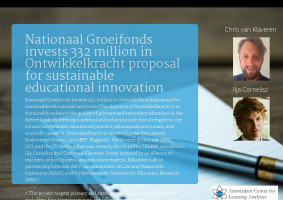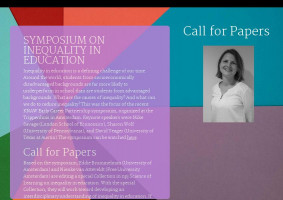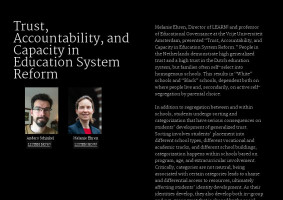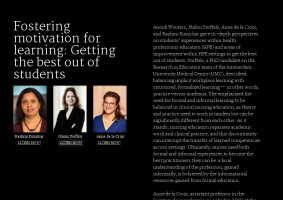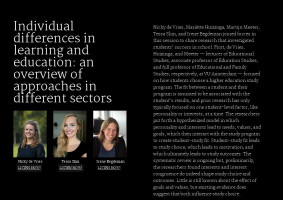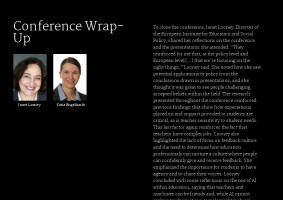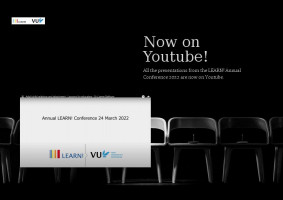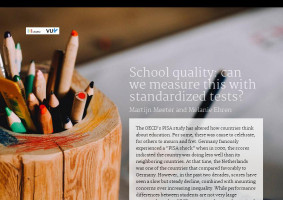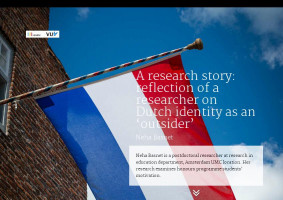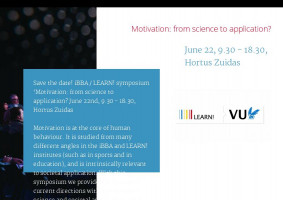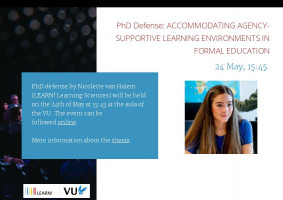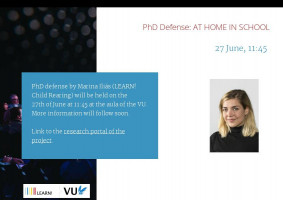In recent years, concerns have grown about a phenomenon in higher education which has been termed ‘contract cheating’. It involves students outsourcing the completion of an assignment to a third-party, often for a fee, which they subsequently submit as their own in order to receive academic credit (Lancaster & Clarke, 2016; Walker & Towley, 2012). While contract cheating is not new, some media outlets paint a picture of a significant and rising problem. The proliferation of commercial providers has generated particular concern. Getting a better grasp of how prevalent contract cheating is, as well as what we can do about it, is crucial, considering the significant threat that it poses to academic integrity.
Are we witnessing a global rise in contract cheating?
A growing number of studies has tried to get a sense of how prevalent contract-cheating is. Based on a systematic review of the academic literature, Newton (2018) has estimated that one in seven graduates around the world might have engaged in contract-cheating, which constitutes 31 million students worldwide. Newton (2018) however noted we need to interpret these estimates with caution, as numbers are likely to be underreported.
Part of the problem in estimating the scale of contract cheating is that it is difficult to detect. Originality-detection software such as Turnitin, PlagScan and Urkund is often ineffective, as contracted assignments tend to contain original content and are often well-written and well-referenced (e.g. see Lines 2016). Consequently, in attempting to get an idea of the number of students engaged in contract-cheating, most research consists of self-report studies, which ask students whether they have ever paid a third-party to undertake work for them. Concerns however exist about whether self-report methods are reliable techniques to get a sense of “undesirable” behaviors such as academic misconduct (Newton, 2018). Studies with an experimental design indeed suggest self-report studies might result in underestimates of commercial contract cheating usage (Rigby et al., 2015).
Other ways of getting a sense of the prevalence of contract cheating are to look at the supply-side of the practice. In many countries, custom essay websites have proliferated and a significant informal “gig economy” has emerged. By reviewing the financial status of the ‘Essay Industry’, Owings and Nelsen (2014) estimated that the industry has ‘annual revenues somewhere upward of $100 million with estimated minimum profits of $50 million.’ While it remains difficult to say how many students are engaged in contract cheating and how many commercial contract cheating services are in operation, the growth of the supply side indicates the practice of contract-cheating might be widespread.
Why do students engage in contract cheating?
One key question that emerges from the acknowledgement that there might be substance to claims by media actors and policy makers about contract cheating being ‘on the rise’ (Newton, 2018, p.7) is why this would be the case. With regards to this question, the academic literature highlights a number of student motivations to engage in contract cheating, which include a lack of confidence in one’s own skills, a lack of satisfaction with the teaching and learning environment, disengagement with courses or assignments, a lack of understanding of assessment requirements, external pressures (including times pressure and performance pressure), a lack of understanding of academic integrity principles, as well as the perception that other students are cheating. Moreover, research highlights a number of personal characteristics might play a role. It appears male students, younger students, and students enrolled in lower levels of study, are more likely to engage in contract cheating. Some studies have also documented that second language students might be more likely to use contract cheating services.
What can we do about contract cheating?
In order to protect academic standards, quality and integrity, and to limit the influence of contract cheating in higher education, a number of suggestions have been offered which could be considered by policymakers as well as higher-education institutes:·
- Legal changes to make the provision of commercial contract cheating services illegal: Whereas in some contexts, commercial contract cheating services are legal, other countries have introduced legislation which makes it illegal to advertise or offer contract cheating services. Despite calls to introduce similar legislation in other contexts, some research paints a blank picture with regards to the effectiveness of legal measures. For example, Amigud and Dawson (2020) show that even in contexts where contracting cheating services are illegal, ‘contractors operate in plain sight, offering services to and from localities where services are prohibited by law’.
- Staff professional development: It has been emphasized academic staff needs to be supported and resourced in identifying and investigating possible contract cheating, as well as in facilitating discussions with students about academic integrity (Morris, 2018). In a paper entitled ‘Detecting contract cheating in essay and report submissions’, Rogerson (2017) documents various patterns and clues that might help academic staff to detect contract cheating.
- Updating academic honesty and misconduct policies: The inclusion of contract cheating related policies and procedures in academic honesty or academic misconduct policies has been suggested. This includes procedures on what to do when contract cheating is suspected or detected.
- Raising student awareness and promoting support: In an attempt to prevent students to engage in contract-cheating, universities can organize academic integrity training to promote students’ understanding of academic integrity principles and the breach that contract cheating poses (Harrison et al. 2020). Moreover, the provision of greater support that enables students to develop academic writing skills has been suggested.
- Changes in assessment design: Alternative assessments methods that are less susceptible to contract cheating could be considered, including in-class tests and exams as well as oral presentations of completed assignments.
While some of these suggestions might not be able to eliminate the opportunity to engage in contract cheating entirely, they might reduce the motivation to do so. In deciding how to respond to contract cheating practices, Walker and Towley (2012) recommend policymakers and higher education institutes to ‘avoid moral panic and remain focused on supporting honest students and good academic practice’. In other words, any response to contract cheating would likely benefit from making sure prevention and deterrence measures are developed in ways which support the intellectual community, promote good and trusting relationships between students and academic staff, and strengthen students’ academic skills.

Dr. Marjolein Camphuijsen
Assistant Professor, LEARN! - Educational governance, identity and diversity



